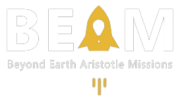BEAM 3rd Gen
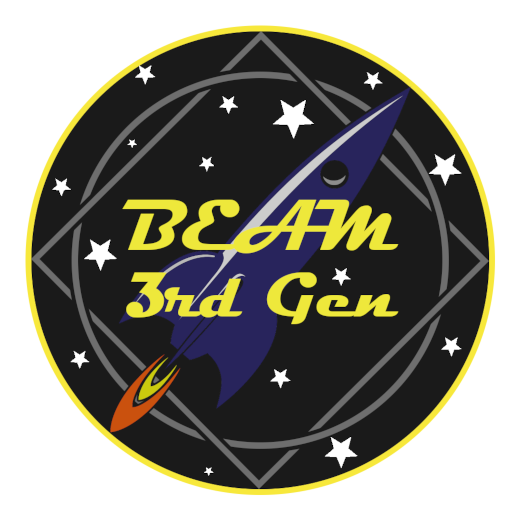
We are BEAM 3rd Gen, one of BEAM’s teams, that consist of students from various fields of study, who share their love for space missions. Our team was created in August 2020. We aim to participate in a number of educational space-related programmes, the main being the REXUS-BEXUS programme. By scrolling down, you can find more information on our team, and if anything sparks your interest don’t hesitate, contact us for more information.
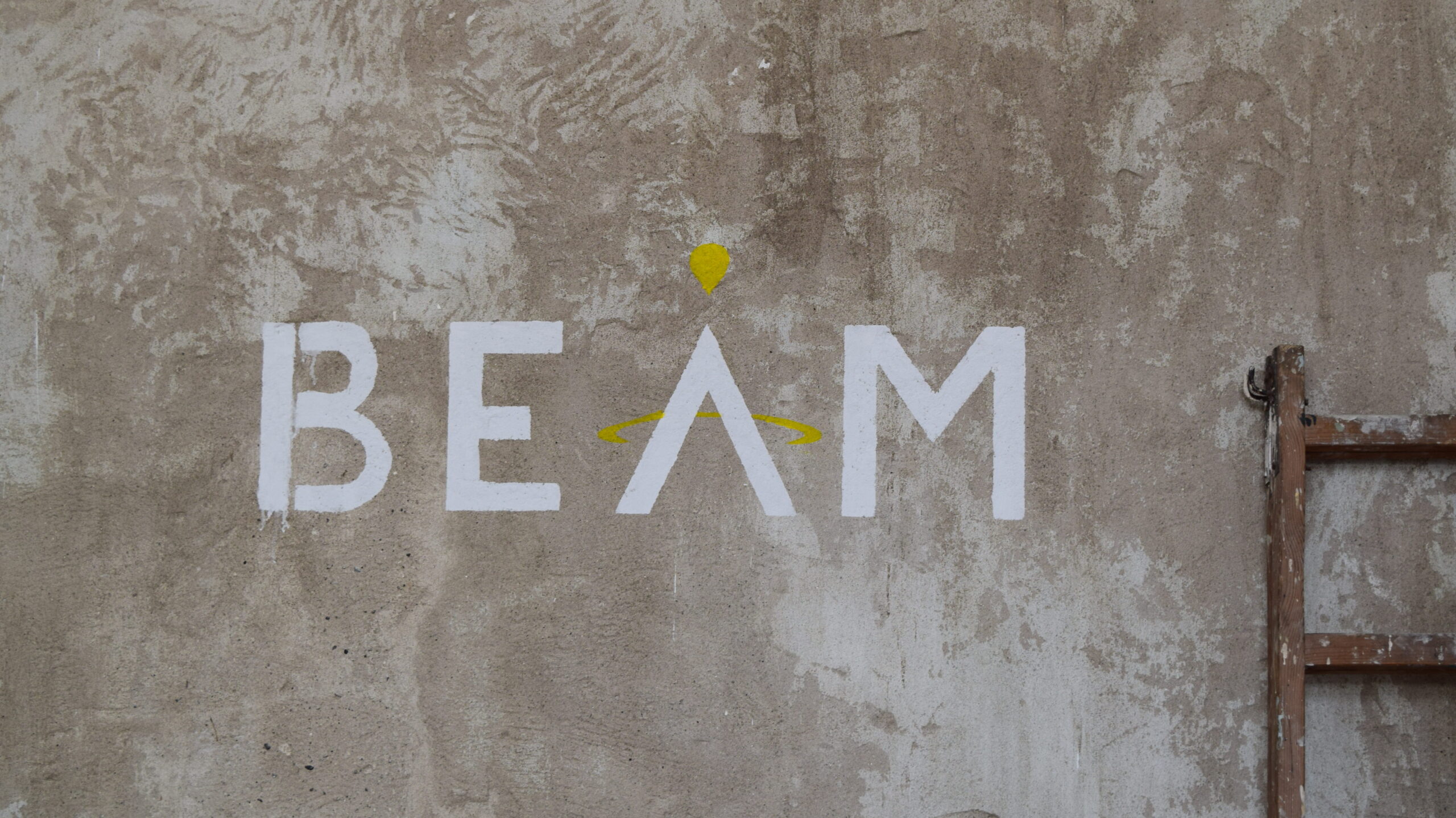
BEAM 3rd Gen
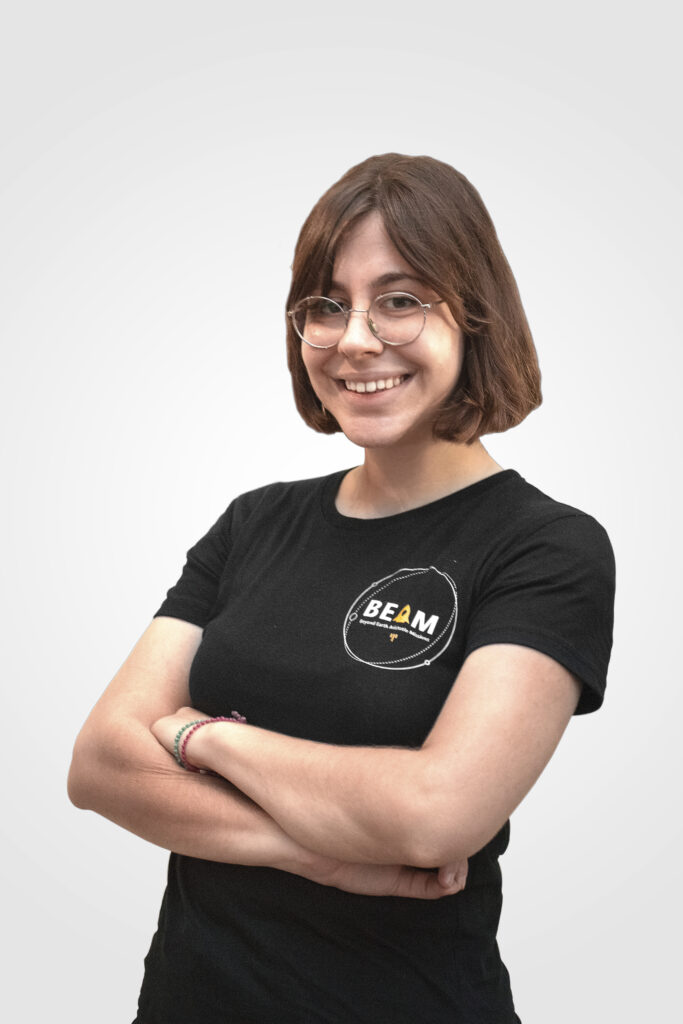
Chrysa Episkopou
Electrical and Computer EngineerSubteam of Electronics
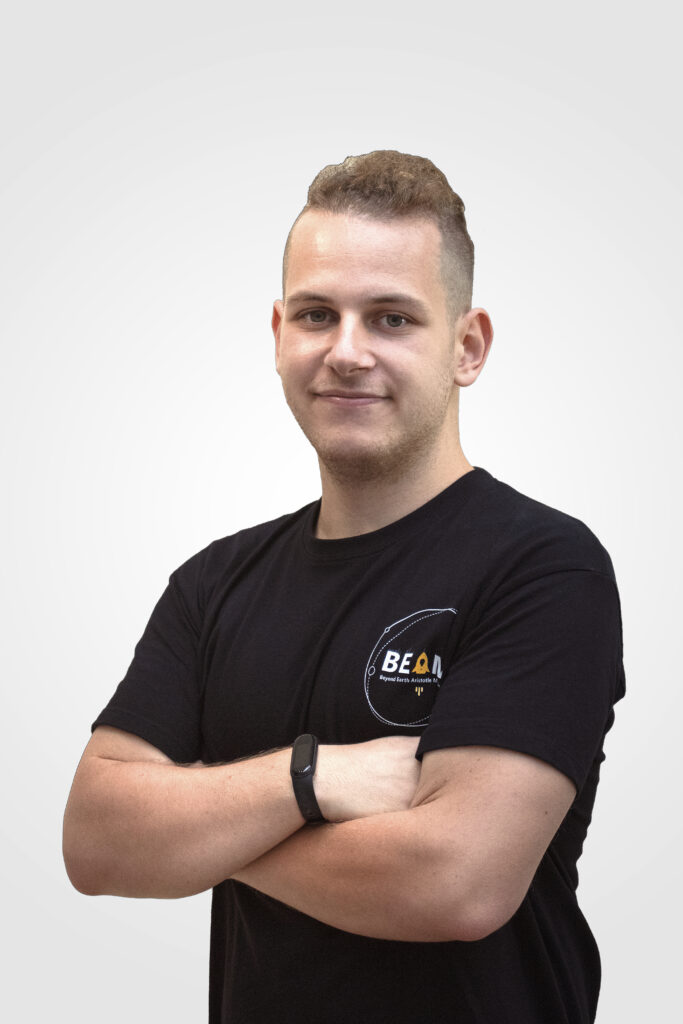
Hercules Konsoulas
Informatics and Electronics EngineerSubteam of Software
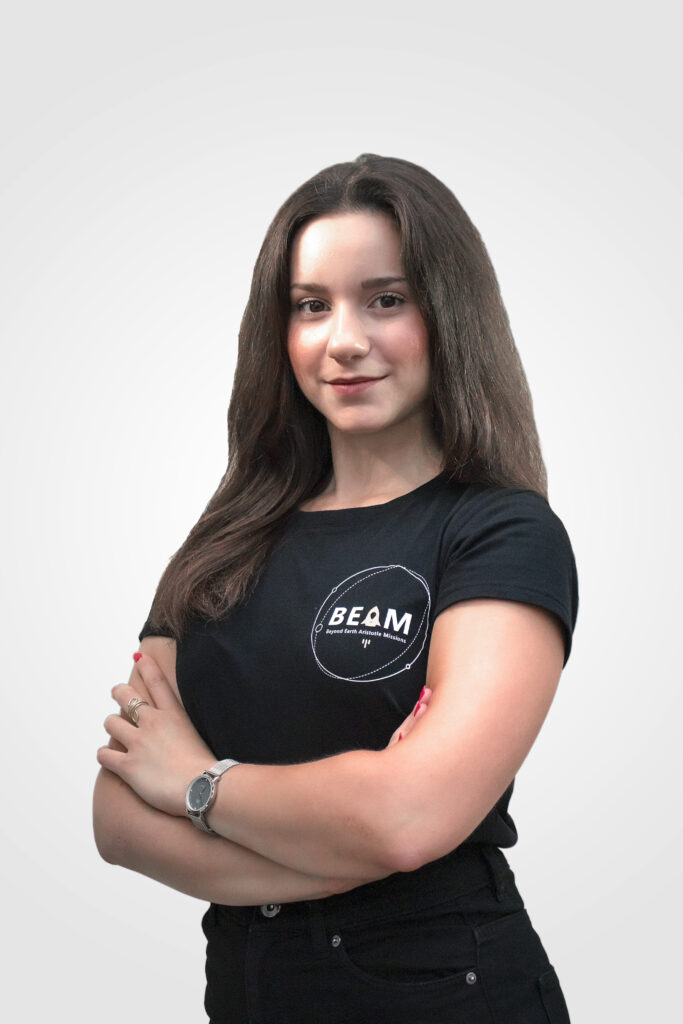
Konstantina Noula
PhysicistSubteam of Science
Subteam of Marketing & Outreach
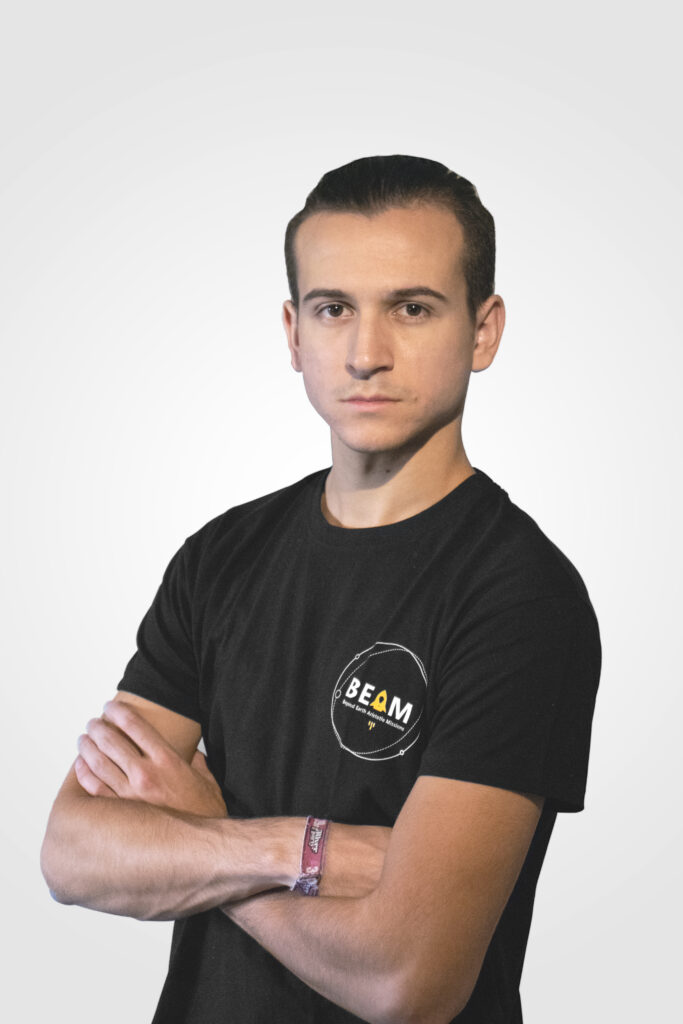
Dimitris Komitis
PhysicistSubteam of Mechanics
Subteam of Science
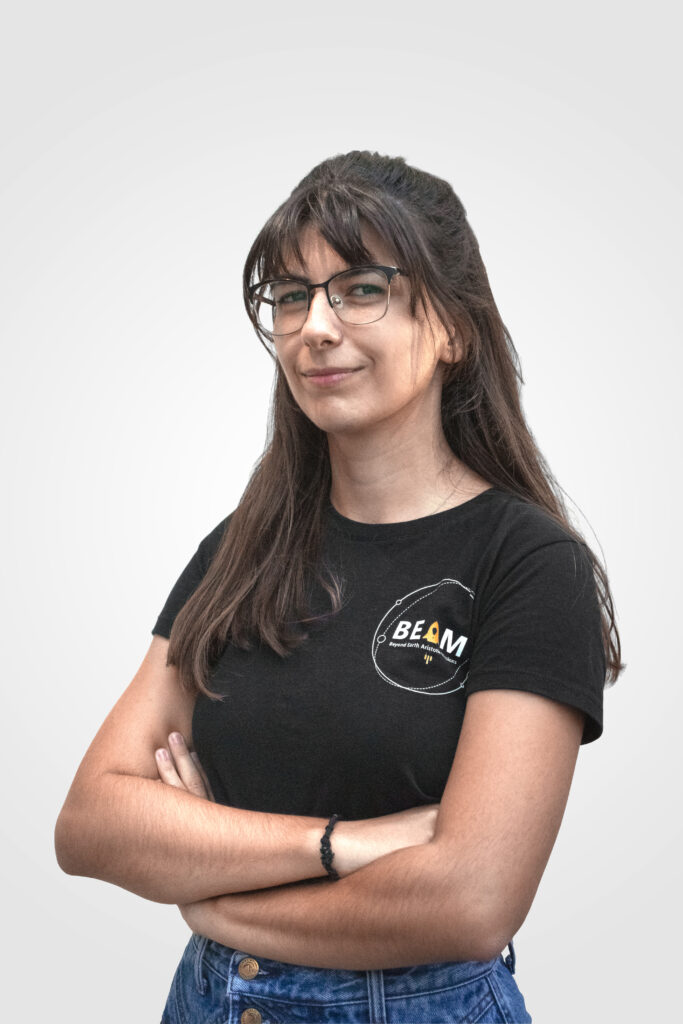
Eirini Rodiou
PhysicistSubteam of Electronics
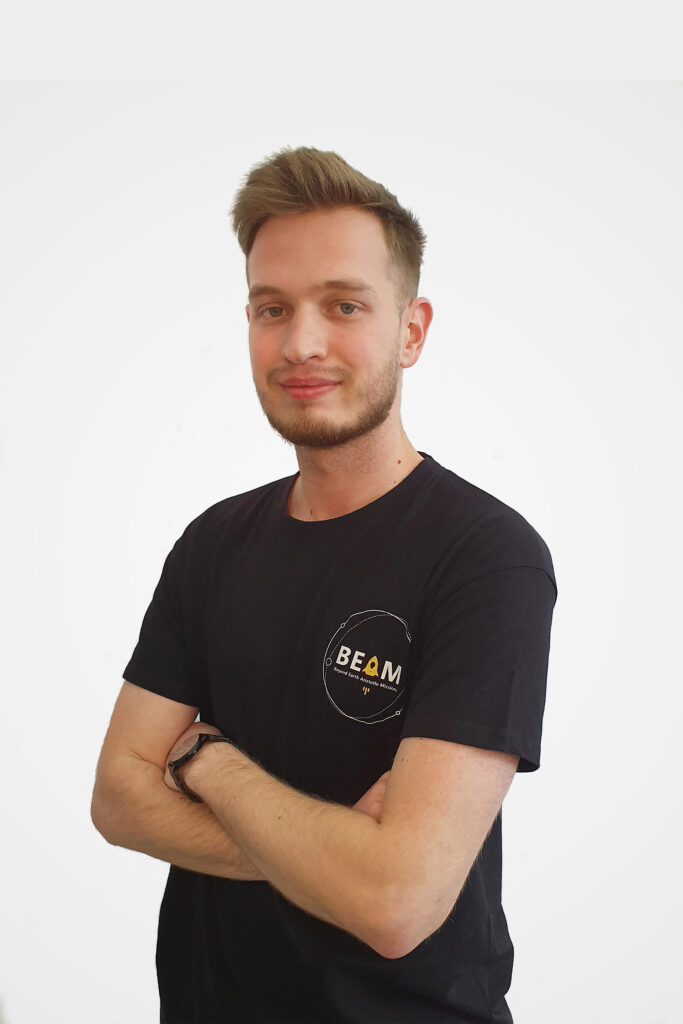
Alexis Pakas
Electrical and Computer EngineerSubteam of Electronics
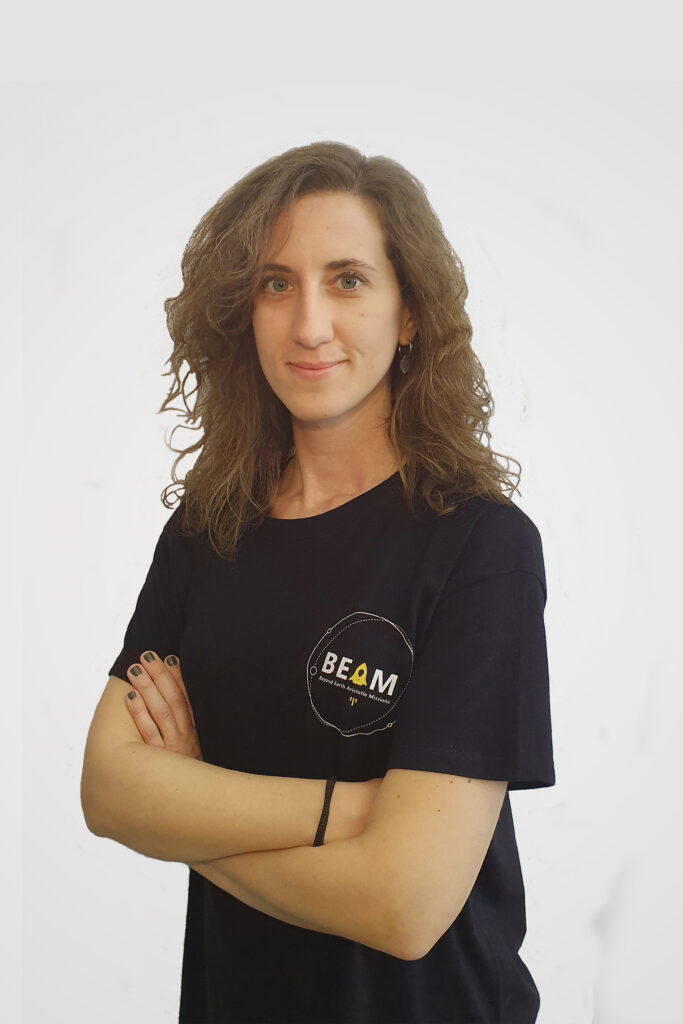
Katerina Zachari
Environmental Engineer & Economic ScientistSubteam of Mechanics
PROJECTS
NASA’S SPACE APPS CHALLENGE
Our team participated in NASA’S SPACE APPS CHALLENGE 2020, which took place in October 2-4, virtually due to the Covid-19 pandemic. Two teams were formed: SoftBEAM and BEAMkit-3D.
SoftBEAM, while tackling the “Can You Hear Me Now?” challenge, designed a video game in which the players find themselves in a base on Earth, having to communicate with an astronaut on Mars, in order to help him survive. But how easy can communication between Earth and Mars be? The game is designed to educate the players about the difficulties that must be overcome, as well as to guide them through finding the best solution.
BEAMkit-3D’s choice was the “Virtual Planetary Exploration” challenge. The team designed 3-D models of three basic geological tools that are typically used for extraterrestrial soil exploration: a small drill, a shovel and a hammer, along with the toolkit in which they are stored. By reforming the designs and using the same compartments in multiple tools the team managed to decrease the weight and the cost of the kit. The models can be found in a site created by the team.
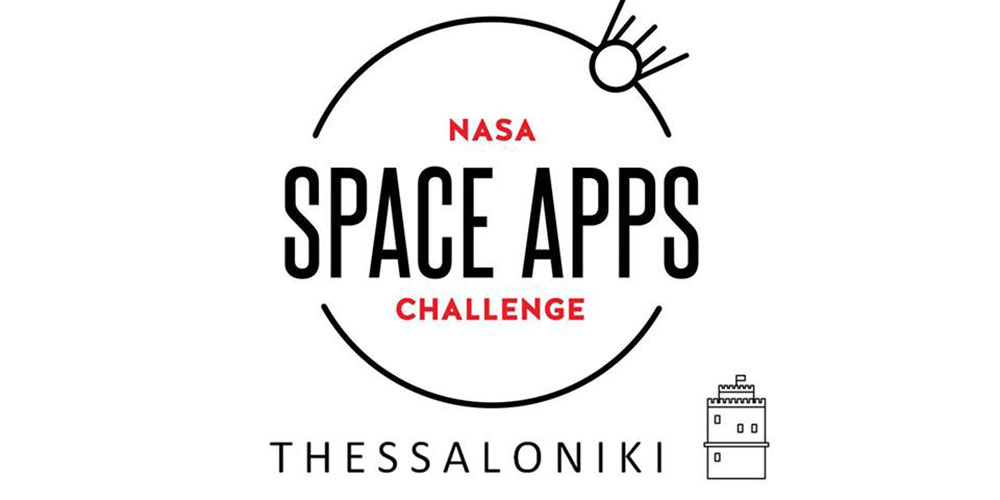
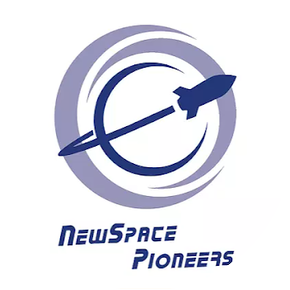
Greek NewSpace Society: NewSpace Pioneers
Dimitris Komitis, a member of BEAM 3rd Gen, was chosen to take part in NewSpace Pioneers 2020, an educational internship program organized by Greek NewSpace Society. By participating in NewSpace Pioneers, both under- and postgraduate students have the chance to conduct short research on space-related topics.
Dimitri’s team (Members: Konstadinos Malakis, Emmanouil Tzagakis) worked on “Space Internet: A review of the technological solutions and challenges”. They presented a paper in which they compiled both the problems that occur in the course of developing a web in space, as well as, the protocols and technologies that can be applied for them to be overcomed.
According to Dimitris: “I was given the opportunity to gain new knowledge, combine it with my field of expertise and produce something useful out of it. This program is an excellent introduction to research and cooperation for the production of a dissertation.”.
NASA’S SPACE APPS CHALLENGE 2021
Members of our team participated in NASA’S SPACE APPS CHALLENGE 2021, that took place in October 2-3, once again virtually, due to the Covid-19 pandemic. BEAM 3rd Gen’s members, in collaboration with the students Manolis Eleftheriadis and Giannis Liodis, formed a team named ILLUMINAT3D.
The team chose to tackle the challenge “When light curves throw us curve balls” and developed an innovative app that aims to provide the light curves of 3D models. Light curves are special diagrams that showcase the brightness of an object depending on its angle of rotation. The user uploads the 3D model that he/she wants to study, in our user-friendly GUI, and adjusts five different parameters, that determine how the model is going to be analyzed. After that, the app delivers the light curve that can be studied and saved by the user. The ILLUMINAT3D app was built upon an entrepreneurial combination of mathematics, physics, and coding. It can be used by anyone, regardless of their scientific knowledge, and has the potential to evolve into both an educational, as well as a scientific tool.
ILLUMINAT3D was awarded the Local Winner Award in the NASA’S SPACE APPS CHALLENGE THESSALONIKI | PIRAEUS 2021, and the Global Nominee Award in the NASA’S INTERNATIONAL SPACE APPS CHALLENGE 2021.
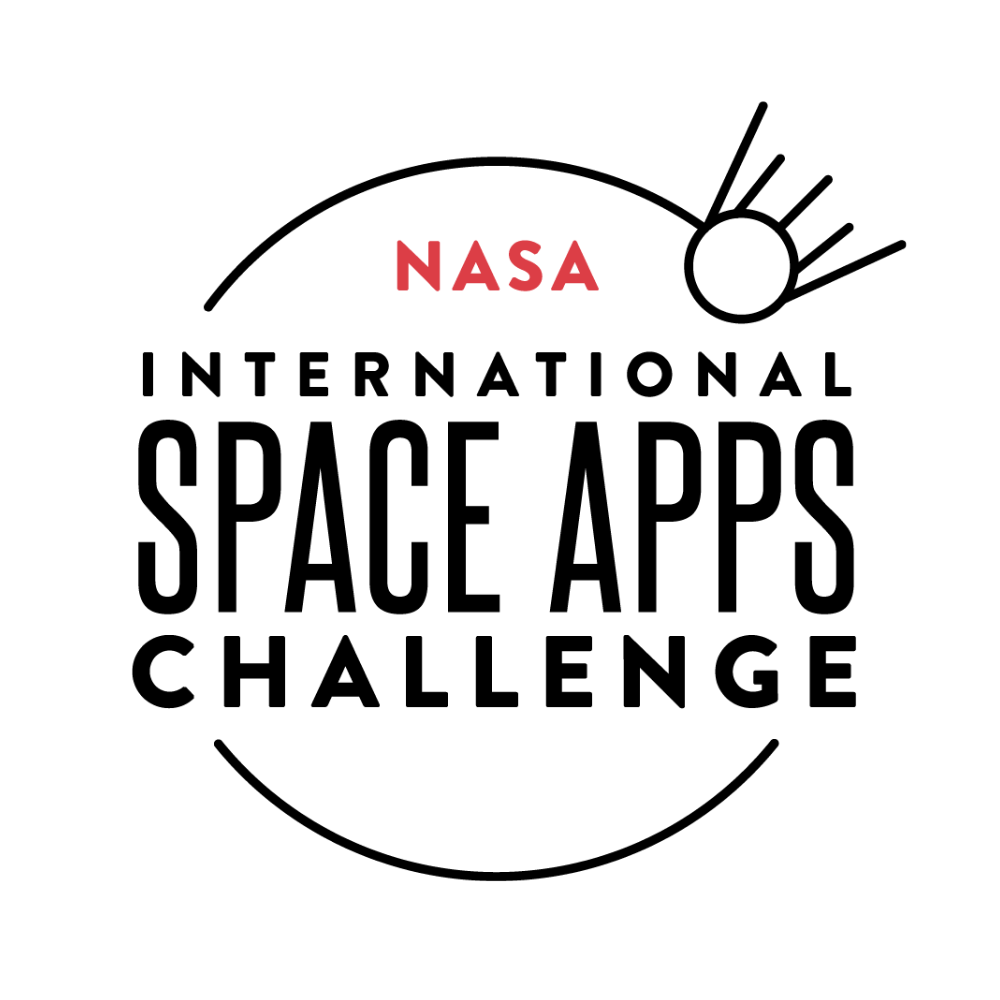
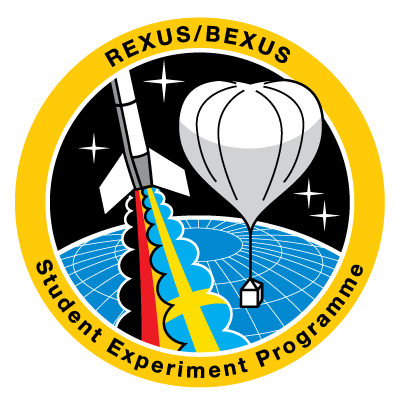
REXUS-BEXUS
Our main goal is to participate in REXUS-BEXUS, an educational competition organized by ESA, DLR, SNSA, SSC, ZARM and EUROLAUNCH. By taking part, student teams have to design, build, and execute an experiment using one of the two available platforms: REXUS, an unguided rocket, or BEXUS, a stratospheric balloon.
Our experiment – DROPSTAR
Our experiment is called DROPSTAR and it aims to study the oil droplet coalescence events that take place in an emulsion, in microgravity conditions. We designed a novel emulsification device, where an emulsion is going to be produced and studied, in situ, during the flight of the REXUS rocket, a single stage rocket. In order to study the emulsion, a camera display and a special electric technique, the I-VED technique, are going to be used. With the I-VED technique, measurements, concerning the differences in the emulsion’s resistance, are taken. In this way, the size distribution of its droplets is extracted.
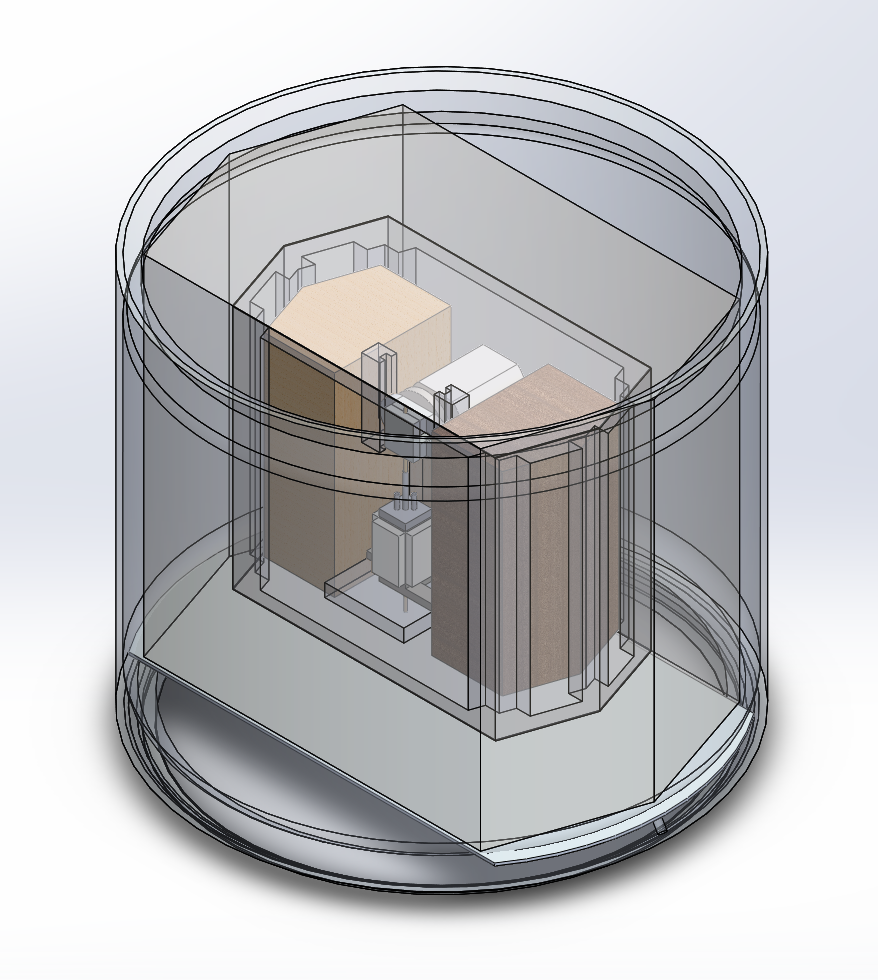
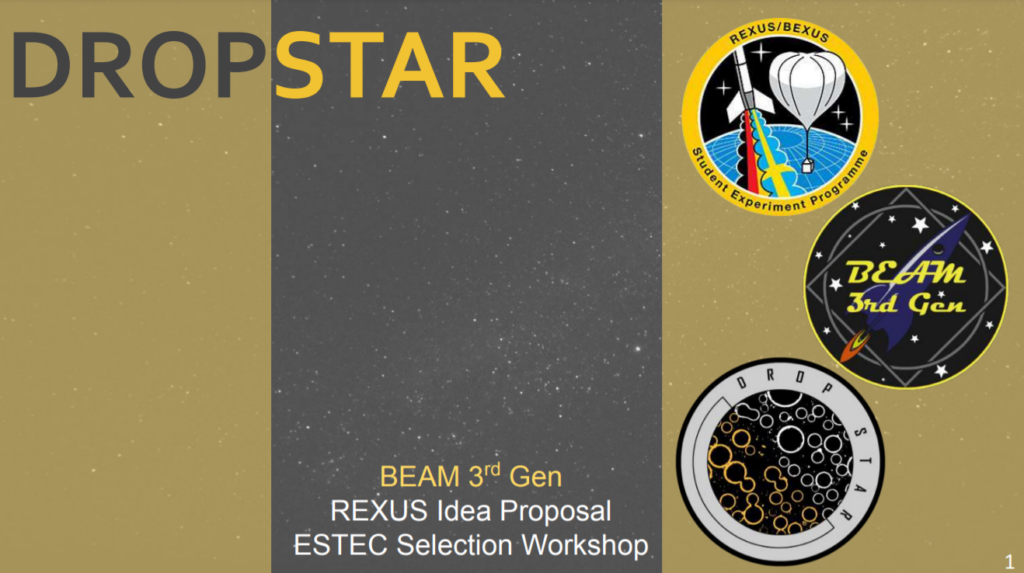
The Selection Workshop – Our team’s selection
After submitting the experiment’s Proposal Paper, our team was invited to participate in the REXUS-BEXUS Selection Workshop, that took place on 30/11-2/12, online, due to the Covid-19 pandemic.
In the course of the Workshop, both the team and the experiment had to be evaluated. Our team gave a presentation, and engaged in a Q&A session with the panel, consisting of specialists from all the organizing agencies.
In addition, we had the chance to attend a number of seminars and lectures, given by the specialists. Thus, we were able to familiarize ourselves with the ways in which the agencies organize and execute their projects, we gained new knowledge and obtained the necessary tools for the next stages of the program.
Approximately a week after, we received the Selection Workshop Results, and we are thrilled to announce that DROPSTAR has been selected to participate in Cycle 14 of the REXUS Program! We are extremely excited and ready to work so as to accomplish a successful development of the experiment.
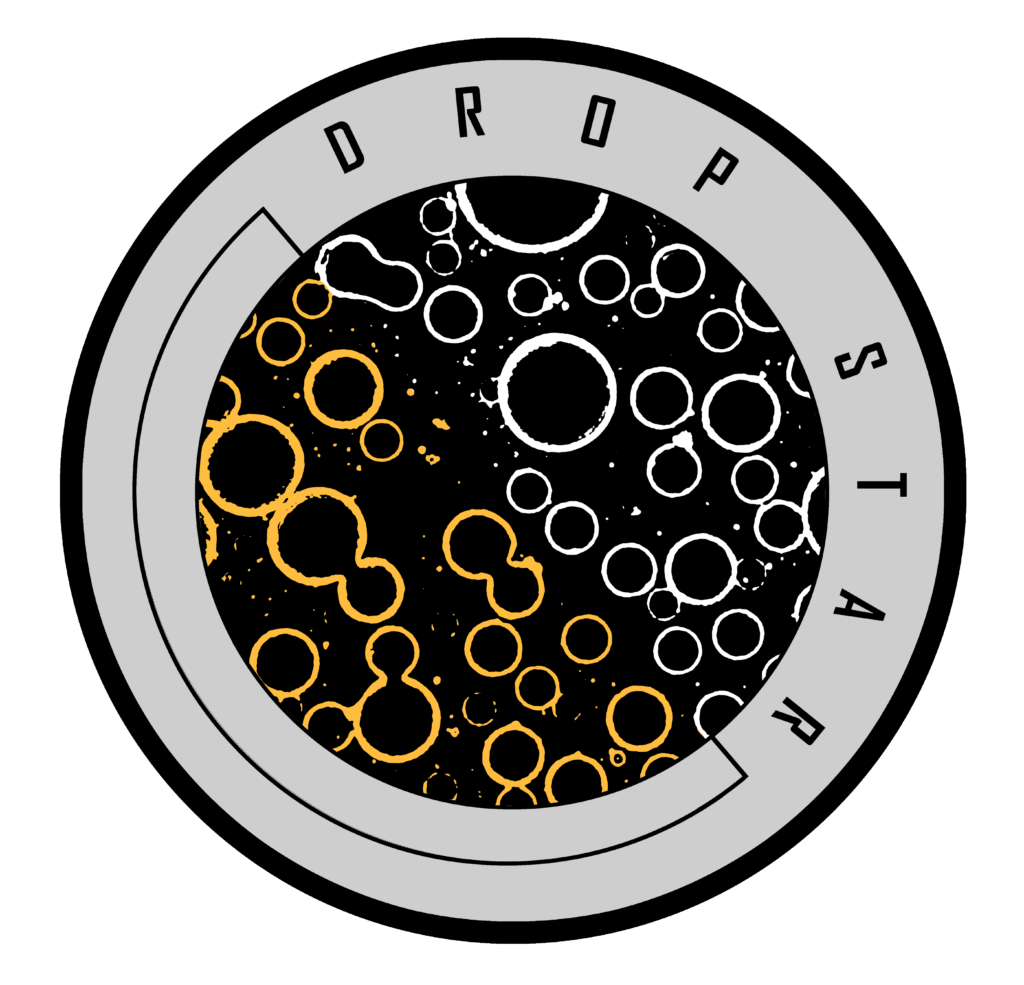
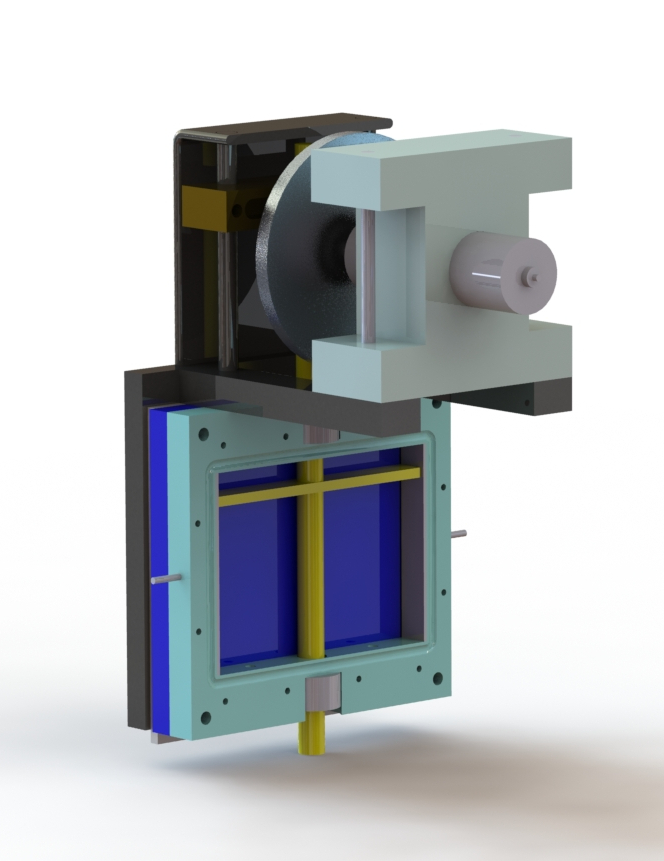
Student Training Week – Preliminary Design Review – DROPSTAR’s first milestone
The experiment’s selection was followed by an intense period of working, the product of which was the first version of a document called Student Experiment Documentation (SED), a document that includes all of the critical information about the experiment and our team. Right after the document’s submission began the team’s preparation for the first Student Training Week of the REXUS/BEXUS Programme, which took place on the 7-11 of February 2022.
During the Student Training Week we had the chance to attend a number of lectures given by the organisers, from which we gained new knowledge on the Programme, the REXUS Rocket, the ways to successfully organise a team, and much more. In addition, the Preliminary Design Review of our experiment took place, where a panel of experts examined every aspect of DROPSTAR. This was followed by a productive conversation where we received valuable feedback and advice so as to further improve our experiment.
Student Training Week – Critical Design Review – DROPSTAR’s second review
The time period of February to May 2022 was one of progress for our experiment. The subteams worked constantly for the improvement of DROPSTAR and the growth of the experiment’s main document, the Student Experiment Documentation (SED). From 29/5 to 3/6 the second Student Training Week of the Programme took place, for the purpose of which, six members of our team travelled to Oberpfaffenhofen, Germany.
During the training week, the organisers conducted the second review of the team and the experiment. The team managed to pass this review as well, while the conversations that followed, with the experts, gave us useful advice and feedback for the further development of DROPSTAR. Of course, lectures from the experts were included in the week’s schedule and, as always, they were a source of inspiration and information. Another important, and pleasant, element, was the team’s interaction with the rest of the teams that participate in the REXUS/BEXUS Programme, since we share the same goals.

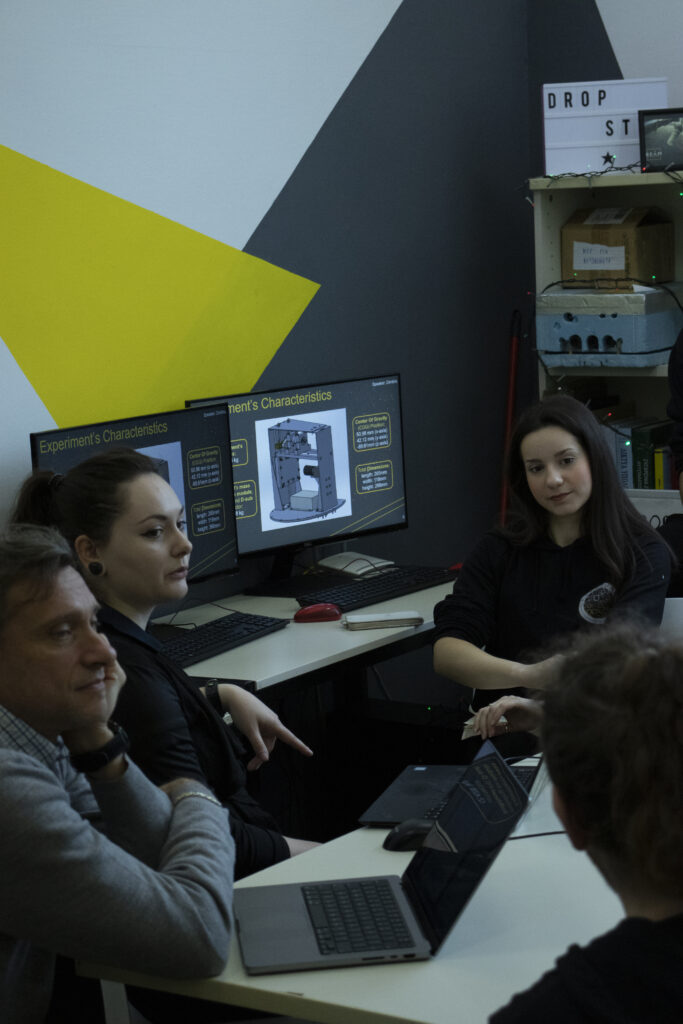
Integration Progress Review – DROPSTAR’s third review
On the 13th of December 2022 our team participated in the first IPR (Integration Progress Review 1) of the REXUS/BEXUS Programme, which took place in our University, AUTh, in Thessaloniki. For the review, our Payload Manager, Armelle Frenea Schmitt from SSC, and our Mentor, Giorgio Parzianello from ESA arrived in Thessaloniki, in order to check on the progress of our team. In this productive review, our team received useful feedback and advice which is ready to implement for the improvement of DROPSTAR, as now the experiment enters its construction phase.
Integration Progress Review 2 – DROPSTAR’s fourth review
On the 4th of August 2023 our team participated in the second IPR (Integration Progress Review 2) of the REXUS/BEXUS Programme, which took place in our University, AUTh, in Thessaloniki. For the review, our Payload Manager, Armelle Frenea Schmitt from SSC, and our Mentor, Giorgio Parzianello from ESA arrived in Thessaloniki, in order to check on the progress of our team.In this productive review, our team received useful feedback and advice which is ready to implement for the improvement of DROPSTAR, as now the experiment enters its final phase.
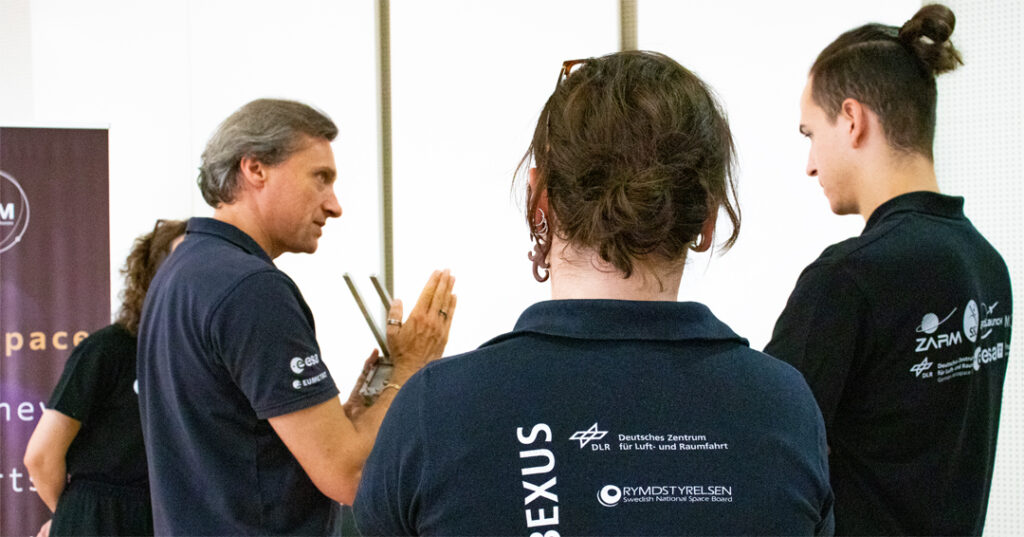

Experiment Acceptance Review – An important review for DROPSTAR
On the 10th of November DROPSTAR’s Experiment Acceptance Review in the course of the REXUS/BEXUS Programme took place. For the review, our Payload Managers, Armelle Frenea Schmidt and Esmee Menting from SSC, arrived in Thessaloniki, in order to check on the progress of our team.
After presenting the latest developments in DROPSTAR, the team proceeded to a hardware demonstration of the already built Flight Model parts. In the discussion that followed, we received useful feedback and advice, which we are ready to implement for the improvement of DROPSTAR. After this review the experiment proceeds to the final stage of the Programme.
Integration and Testing Week
On 11/12/2023 to 15/12/2023 members of our Team traveled to ZARM, located in Bremen, Germany, in order to participate in the Integration and Testing Week of the REXUS/BEXUS Programme. During the ITW, the Vibration Test of DROPSTAR took place. The experiment was vibrated under a wide variety of frequencies so as to detect which of them pose significant mechanical stresses on it. In addition, the first Bench Test of all the experiments that will be in DROPSTAR’s rocket took place. The experiments were connected together in order to check the allowances and the interactions between them.


Bench Test Week
From 16/1/2024 to 19/1/2024 members of our Team traveled to DLR, located in Oberpfaffenhofen, Germany, in order to participate in the Bench Test Week of the REXUS/BEXUS Programme. During the Week, several bench tests of the experiments took place along with the rocket’s flight hardware. The experiments were tested both independently as well as integrated, a set-up that simulated the state of the rocket during the flight. During the bench tests, the electrical interferences of the experiments, both with the rest of the experiments and with the rocket, were checked. Finally, the countdown sequence to flight was tested.
REXUS 31/32 Launch Campaign
On the 12/3/2024 at 6:15 CET the Launch of REXUS 32 took place at the ESRANGE Space Center. DROPSTAR was among the four student experiments that the rocket carried with it during the flight. Thus, DROPSTAR officially became the first greek student experiment on a REXUS Rocket!
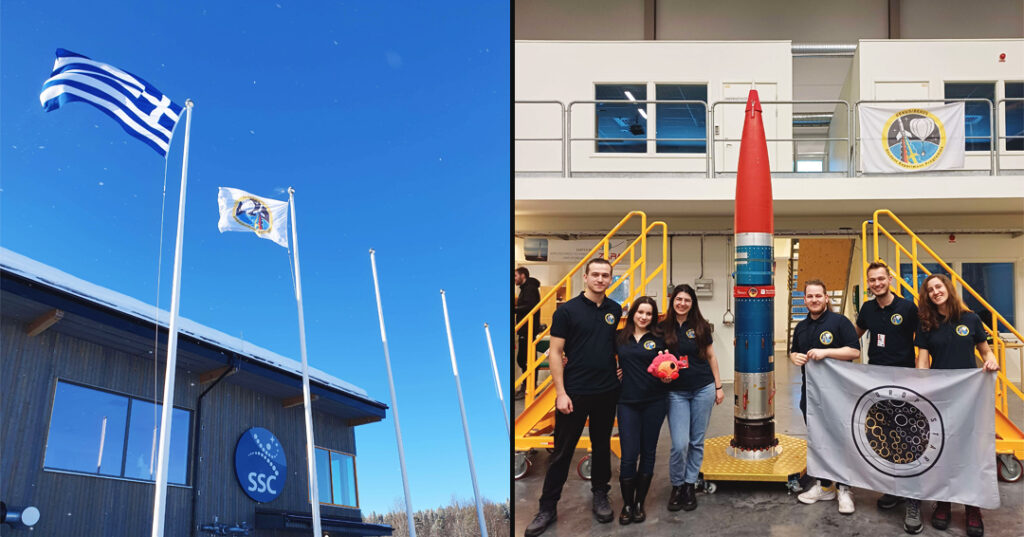

The preparation
The team arrived at the ESRANGE Space Center on the 4/3/2024. The first task was to prepare the experiment for flight. It took a week of careful work to get DROPSTAR ready for the most important ten minutes, the flight of the REXUS 32 rocket. After successfully preparing and testing the experiment the DROPSTAR Experiment was ready for flight.
The big moment
A few days after, the big moment arrived. On the 12/3/2024, the REXUS 32 Rocket was Launched and the DROPSTAR experiment was excecuted with complete success. The experiment managed to handle the stress of the rocket’s flight, fuction as expected and come back on the ground with interesting data for the sector of emulsions.
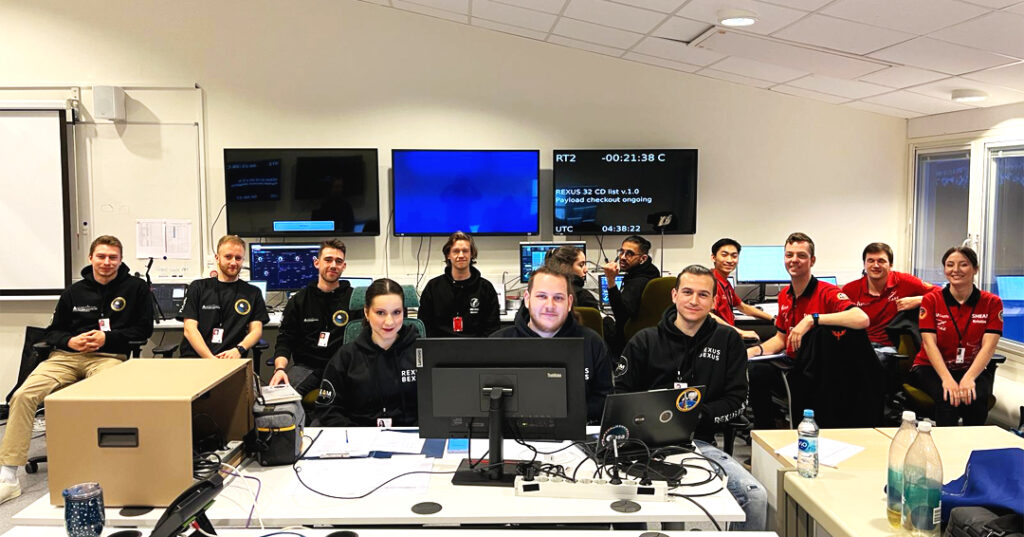
We would like to thank everyone that has supported our vision for DROPSTAR. From the REXUS/BEXUS Programme Organizers and our Sponsors, to everyone that has followed our progress in the last three years, we deeply appreciate your interest and support that you have shown to our team.
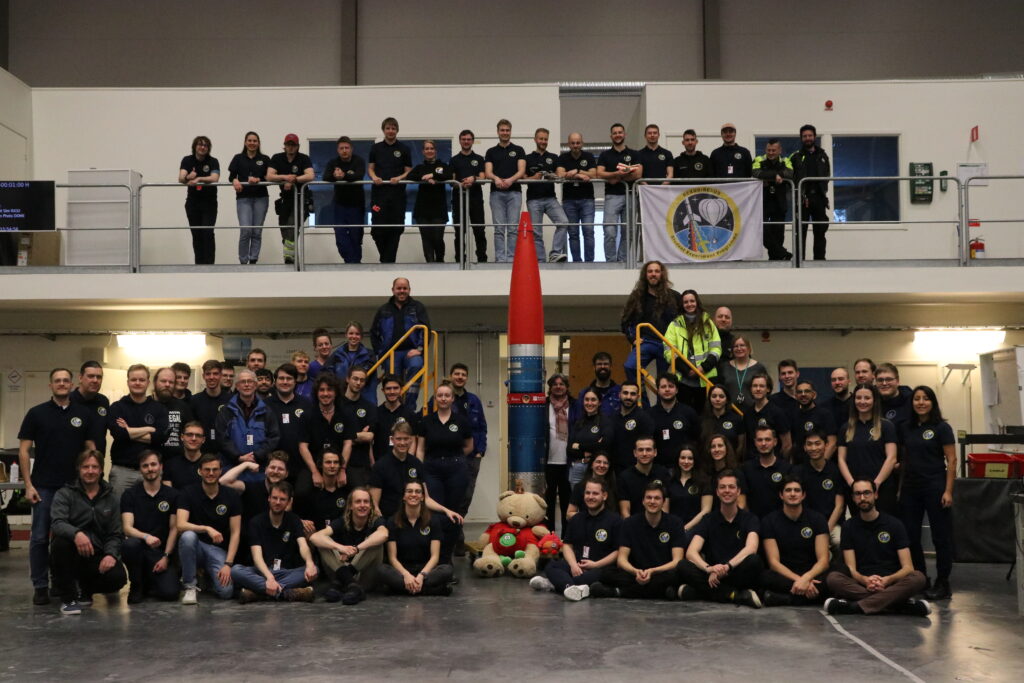
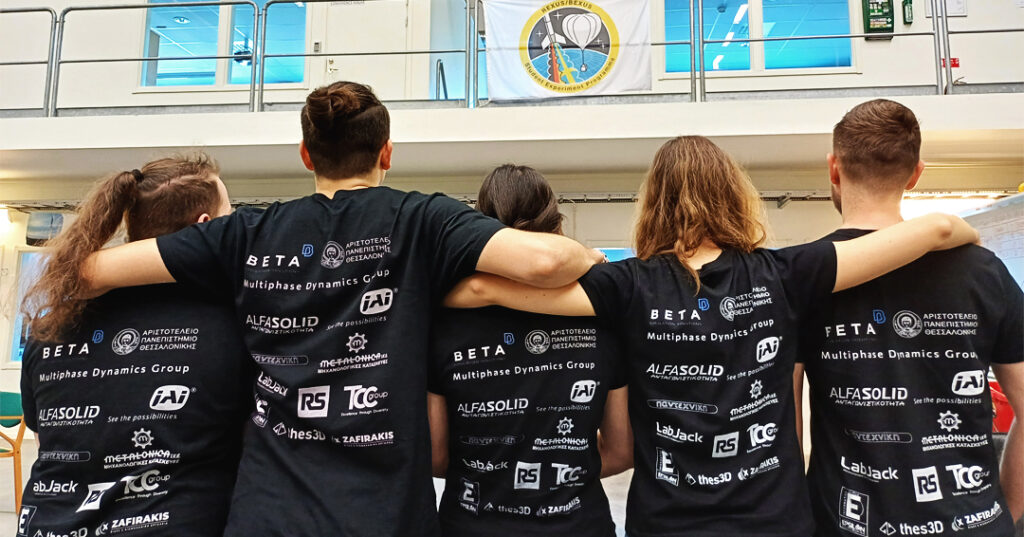
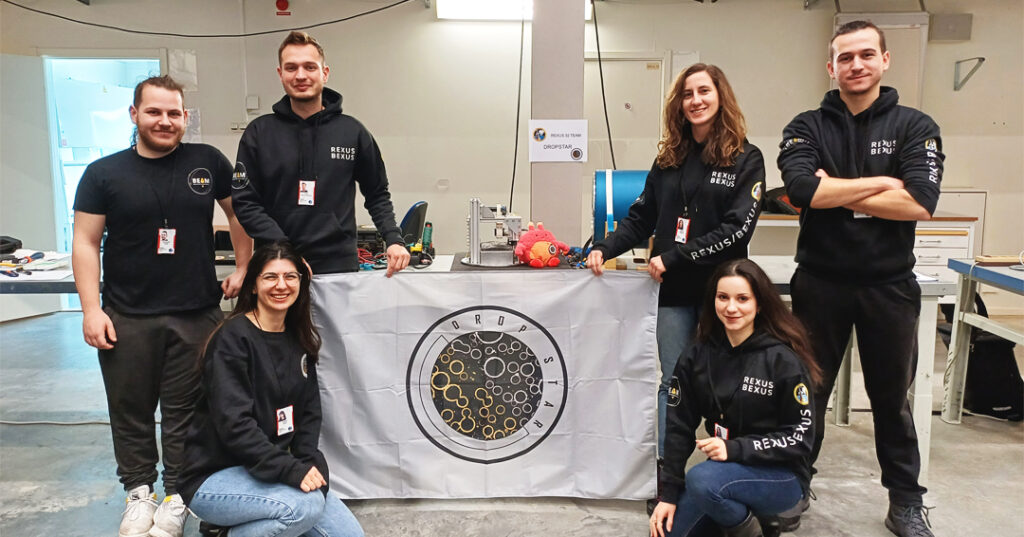
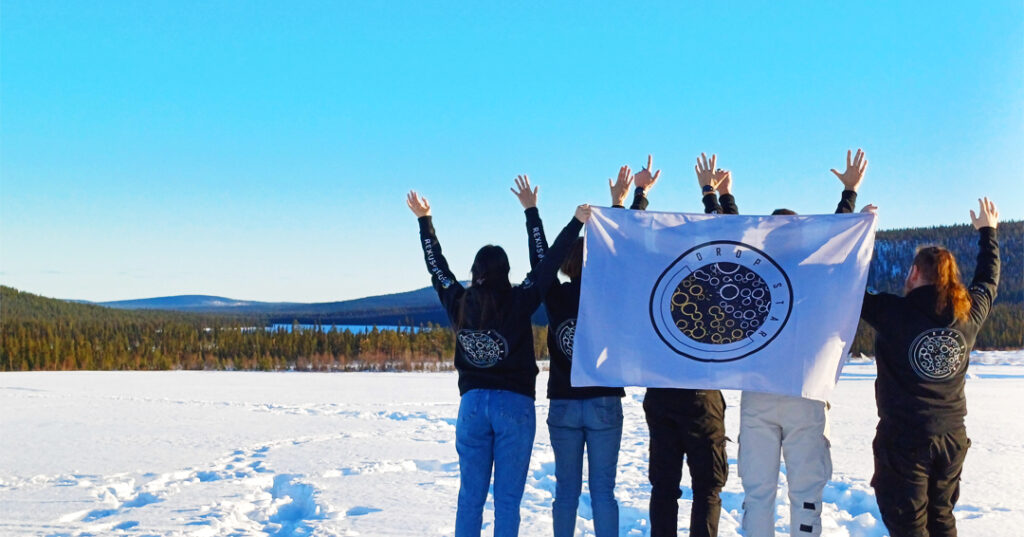
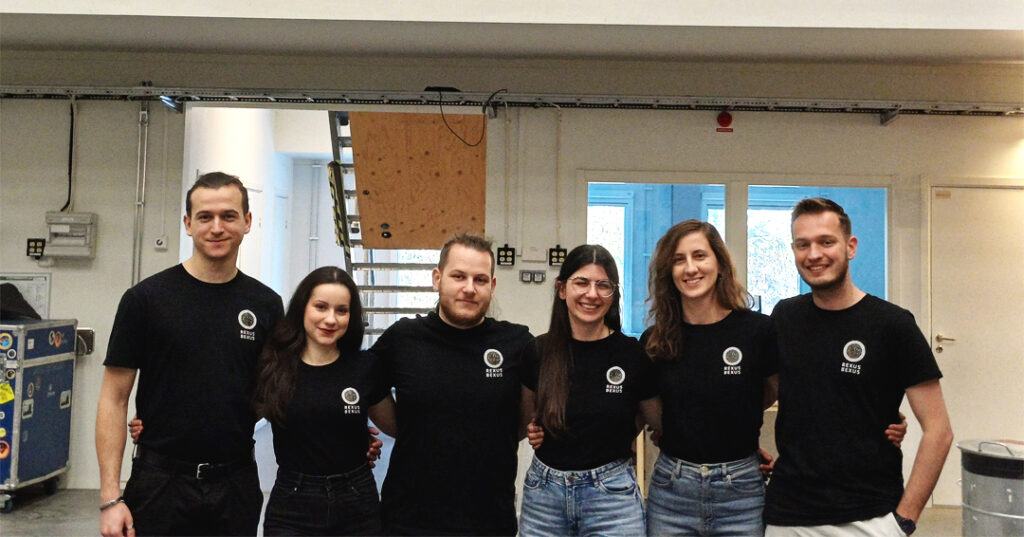
WHAT’S NEXT
Inspired by our love for space, we are currently working on the analysis of DROPSTAR’s Data from the REXUS 32 Flight. However, our activities continue to expand. We are always searching for new projects, aiming for knowledge and new experiences regarding our interests.
Stay tuned for more!
If you want to join us in our journey , you can reach us by filling in the forms below:
